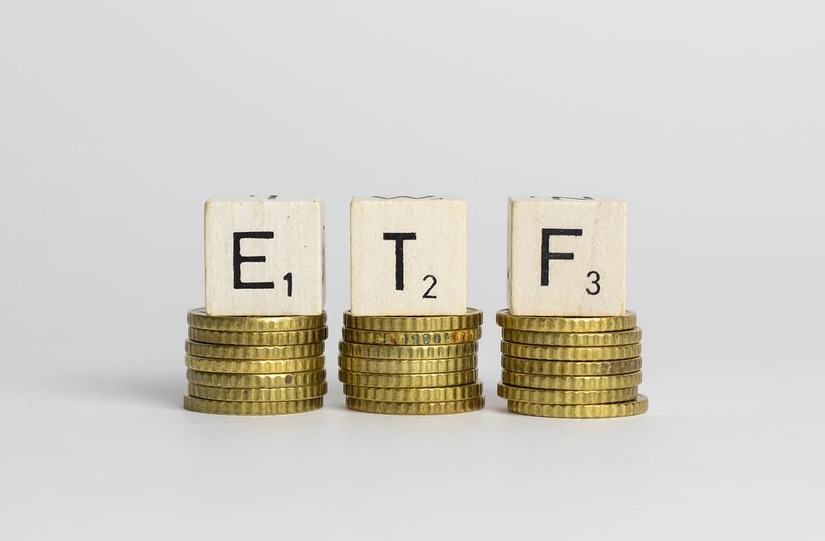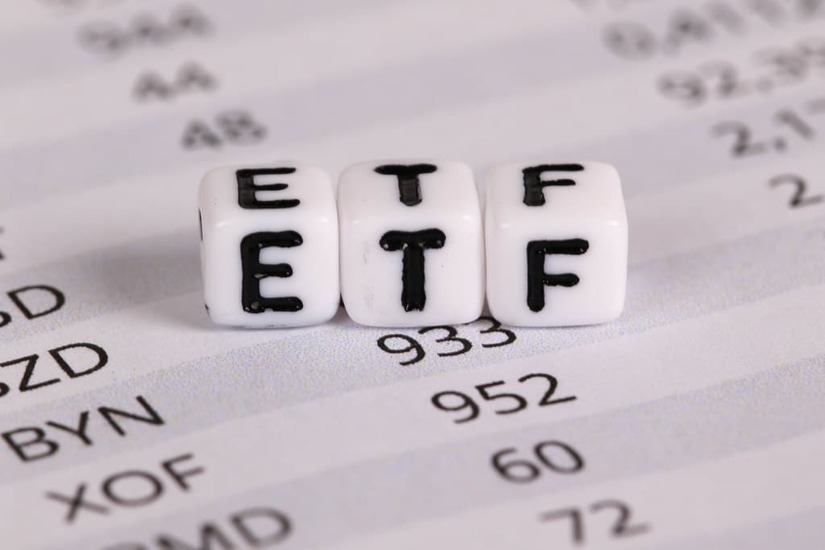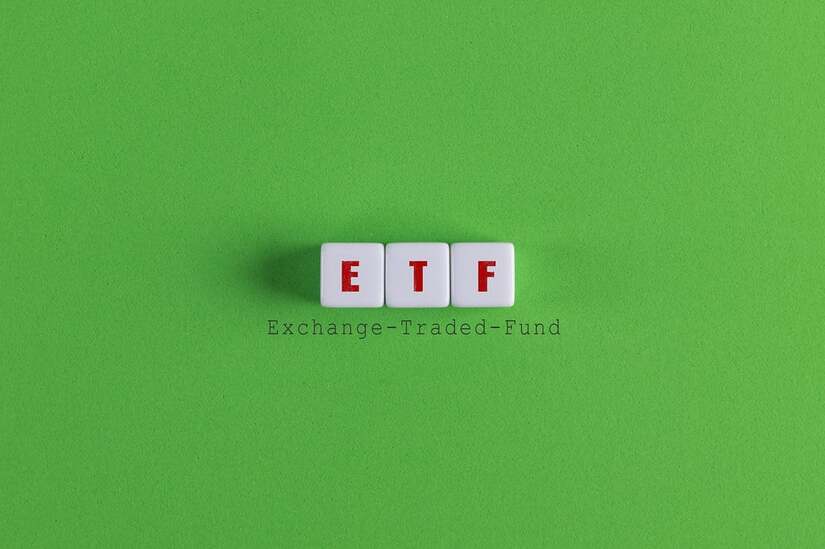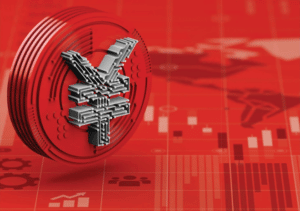11 Best China ETFs To Buy In 2023
If you want to invest as an expat or high-net-worth individual, which is what I specialize in, you can email me (advice@adamfayed.com) or use WhatsApp (+44-7393-450-837).
Table of Contents
Introduction
Here are the 11 best China ETFs you should buy in 2023.
China ETFs that invest in a collection of businesses with headquarters in the second-largest economy in the world allow investors to geographically diversify their portfolios.
There are still a large number of publicly traded companies in China, including Ping An Insurance Group Co of China Ltd (601318), Tencent Holdings Ltd (700), and China Yangtze Power Co Ltd (600900), despite the country’s large number of state-owned businesses.
Following an executive order issued by then-US President Donald Trump in November 2020 prohibiting US investors from purchasing shares of Chinese companies with alleged ties to the Chinese military, the New York Stock Exchange (NYSE) delisted a number of Chinese stocks.
US President Joe Biden stated in May 2022 that his administration was reviewing the tariffs placed on China by Trump, with the possibility of removing them in an effort to reduce consumer prices.
Chinese and American regulators announced a collaboration to examine the audit work papers of Chinese companies listed on US stock exchanges in late August. Although Chinese businesses continue to run the risk of being delisted from US exchanges, this is a crucial step in resolving ongoing disputes.
China’s GDP increased by 2.3% in 2020 as the country’s economy started to recover by the year’s end from the COVID-19 pandemic’s disruptions. However, that growth rate was the smallest in many years.
China’s GDP increased by 8.1% in 2021, largely as a result of robust industrial output.
Geopolitical unrest and ongoing COVID-19 concerns, however, have impeded the recovery. Analysts predicted 3.4% growth for the entire year, but China’s GDP only increased by 0.4% for the second quarter of 2022.
Except for inverse, leveraged, and funds with less than $50 million in assets under management (AUM), there are 17 China ETFs that are traded in the United States. In this article, we will be covering 11 of the best China ETFs.
As of September 1, 2022, the MSCI China Index, which measures Chinese equities, showed a total return of -29.9%, significantly underperforming the S&P 500’s total return of -11.0% over the previous 12 months.
The iShares MSCI China A ETF is the top-performing China ETF based on performance over the past year (CNYA).
What Are The Risk Factors To The Chinese Market In 2022?
Investors from all over the world continue to be drawn to the Chinese market by its relatively low valuation ratios and the possibility of rapid earnings growth. It continues to be extremely volatile, though, and 2022 saw a number of significant losses.
The risk factors in 2022 included:
- Real estate market contagion in China as a result of the Evergrande credit crisis.
- Government crackdowns on China’s technology industry.
- Political risk following President Xi Jinping’s historic election to a third term.
- Due to lockdowns and quarantines brought on by China’s strict zero-COVID policy, stores have closed.
- Opposition to the government’s stringent zero-COVID regulations.
What Is The Correlation Between China And US Markets?
Investors keep pouring money into Chinese equities in spite of these difficulties. Based on the nation’s historically impressive performance when U.S. stocks decline, this is a good thing to do. For instance, the U.S. market slowed down between 2000 and 2007 while the Chinese market expanded.
Chinese stocks currently have a 0.52 correlation with American stock markets, which, when combined with their high volatility and favorable expected returns, may make them a good diversifier.
What Are China ETFs?
China ETFs provide access to the Chinese market without requiring investors to buy the stocks of publicly traded Chinese companies.
As an alternative, the underlying asset (such as stocks, bonds, or money) is bought by the issuing company, and fund investors buy shares of the fund. Your fund investment’s value fluctuates in line with the performance of the underlying assets.
Investors frequently have a “home bias,” according to researchers, which is the propensity to build their portfolios with domestic stocks. However, only about 56% of all global stocks are American.
Exposure to international markets, particularly one with a significant player like China, offers investors the benefit of diversification because markets in one area may increase while those in another may decline.
Risks associated with investing in China ETFs include the effects of the coronavirus outbreak and trade tensions with the United States. But many investors are still making long-term bets on the second-largest economy in the world.
11 Best China ETFs
1. iShares MSCI China A ETF (BATS:CNYA)
CNYA, one of the best China ETFs, keeps tabs on the MSCI China A Inclusion Index. A large variety of stock names make up the fund’s hundreds of holdings.
The top three sectors by representation in a portfolio are financials, consumer staples, and industrial stocks, which account for about half of invested assets. With both value and growth stocks in its holdings, this large-cap fund employs a hybrid strategy.
Chinese battery manufacturer and technology company Contemporary Amperex Technology Co Ltd (300750:SHE), Chinese commercial bank China Merchants Bank Co Ltd (600036:SHG), and partially state-owned Chinese spirits producer Kweichow Moutai Co Ltd (600519:SHG) are the top three holdings of CNYA.
iShares Core MSCI China ETF (HKS:2801) is a wise choice if you only want to invest in one China ETF.
As of this writing, the expense ratio of the MSCI China ETF by iShares, which is listed on the Hong Kong Stock Exchange, is 0.2% as opposed to 0.58% for the MSCI China ETF that is listed on the NASDAQ.

2. iShares Core CSI 300 ETF (SEHK:2846)
You can gain exposure to the Shanghai Stock Exchange and Shenzhen Stock Exchange’s most liquid large and mid-cap stocks by purchasing the iShares Core CSI 300 ETF, one of the best China ETFs.
It is listed in HKD (2846), USD (9846), and RMB (82846) on the Hong Kong Stock Exchange. Therefore, through your broker, you will need access to the Hong Kong markets if you want to invest in this.
3. iShares Hang Seng Tech ETF (SEHK:3067)
The Hang Seng Tech Index was introduced in 2020 to considerable interest. The Hang Seng Tech Index’s main drawback is that it only chooses Hong Kong-listed technology companies (H-Shares), not any A-Shares or ADRs from the United States.
Consider the iShares Hang Seng Tech ETF, one of the best China ETFs, if you only feel comfortable investing in Hong Kong-listed technology stocks.
It is offered by Blackrock and listed on the Hong Kong Stock Exchange in both HKD (3067) and USD (9067).
4. KraneShares Bosera MSCI China A 50 Connect Index ETF (NYSEARCA:KBA)
The MSCI China A 50 Connect Index, which consists of 50 large-cap stocks listed in Shenzhen and Shanghai, is the index that KBA targets.
The fund holds some of the biggest, most liquid stocks in China, as well as some of those that may gain over the long term from increased foreign investment in China’s domestic market.
KBA, one of the best China ETFs, concentrates on stocks that are a mix of growth and value. The top holdings of KBA include Class A shares of LONGi Green Energy Technology Co Ltd (601012:SHG), a Chinese manufacturer of photovoltaic solar modules, Contemporary Amperex Technology, and Kweichow Moutai.
5. KraneShares CICC China 5G & Semiconductor ETF (NYSE:KFVG)
Since the pandemic, hordes of individuals have moved online, driving up demand for semiconductor chips. To meet the demands, the industry is having difficulty. China is a major player in this sector, but it can be challenging for retail investors to predict the winners.
If you are bullish on this theme, an ETF that invests in semiconductors, such as the KraneShares 5G & Semiconductor Index ETF, might be a good choice. This ETF is one of the best China ETFs.
Some of the stocks in its holdings are Luxshare Precision, Foxconn Industrial Internet Co, Xiaomi, BOE Technology, Naura Technology, Zhonghuan Renewable Energy, ZTE Corp, Unigroup Guoxin Microelectronics, Will Semiconductor Co, and Jingsheng Mechanical & Electrical.

6. CSOP SZSE ChiNext ETF (SEHK:3147)
The Hang Seng Tech ETF might not be enough for you if you’re looking for younger tech stocks with the potential for faster growth.
Nevertheless, a large number of the up-and-coming Chinese tech companies are listed on Star Market or ChiNext, a division of the Shenzhen Stock Exchange (part of Shanghai Stock Exchange). Unfortunately, foreign investors cannot directly purchase stocks listed on these two boards.
Purchase ETFs like the CSOP SZSE ChiNext ETF, which invest in stocks listed on ChiNext, to increase your exposure, though.
7. Global X China Electric Vehicle and Battery ETF (SEHK: 2845)
China has the largest global charging infrastructure and the greatest number of electric vehicles. For other nations to adopt electric vehicles, China will serve as a crucial starting point. I made a video comparing EV companies in China here.
The Solactive China Electric Vehicle and Battery Index, which tracks Chinese businesses engaged in the field of Electric Vehicles and Batteries, is followed by the Global X China Electric Vehicle and Battery ETF, which will give you exposure to China’s expanding EV market. This ETF is one of the best China ETFs.
8. Xtrackers Harvest CSI 300 China A-Shares ETF (NYSEARCA:ASHR)
ASHR, one of the best China ETFs, aims to follow the performance of the CSI 300 Index, which is made up of 300 large- and mid-cap China A-Share stocks traded on the Shenzhen or Shanghai Stock Exchange.
Given its lengthy history and substantial trading volume and AUM, ASHR is among the oldest ETFs offering direct exposure to stocks on either of these exchanges.
ASHR does not include stocks listed on other mainland markets, such as those listed in Hong Kong, as its focus is on the Shanghai and Shenzhen exchanges. The fund’s portfolio is dominated by stocks in the financial, industrial, and consumer staples sectors.
The three companies with the most Class A shares owned by ASHR are Contemporary Amperex Technology, Kweichow Moutai, and Ping An Insurance (Group) Company of China Ltd (601318:SHG), a conglomerate that provides financial, banking, asset management, insurance, and other services.
9. Global X China Clean Energy ETF (SEHK:2809)
Consider the Clean Energy theme if you feel that the EV theme is too restricted to increase your exposure.
A company with significant exposure to clean and affordable energy is tracked by the Global X China Clean Energy ETF, which follows the Solactive China Clean Energy Index.
These companies have their headquarters in China and Hong Kong. This ETF is one of the best China ETFs.
10. China Consumer ETF (SEHK:2806)
The rise of prosperity in China would be an additional interesting topic.
Compared to previous generations, China’s middle class can now afford to purchase more goods and services. It’s good news for consumer brands that China has a sizable middle class with spending power.
You will be exposed to brands that cater to the Chinese consumer market thanks to 2806, one of the best China ETFs.
You may be familiar with some of the stocks it holds: Wuliangye, BYD, Kweichow Moutai, Yum China, Li Ning, Gree Electric, Xinghuacun Fen Wine Factory, Techtronic Industries, Li Auto (ADR), and Anta Sports Products.

11. Global X MSCI China Consumer Discretionary ETF (NYSEARCA:CHIQ)
Consumer discretion has the most to gain from a reopening of the economy and an easing of the zero-COVID policies in China. This industry’s retail, dining, entertainment, and travel businesses have been hampered recently and need to make a comeback.
CHIQ, one of the best China ETFs, is a Chinese consumer discretionary sector-focused ETF. This ETF holds large- and mid-cap China A, B, and H shares, red chips, P-chips, and international listings. As of right now, there are 73 holdings in this, including companies like NIO, Yum China Holdings, and Alibaba.
With a beta of 1.20 versus the MSCI Emerging Markets Index, it is not surprising that CHIQ is more volatile than its benchmark. But with a beta of only 0.42 compared to the S&P 500, it may be a good diversifier. The ETF charges a 0.65% expense ratio.
How To Invest In The Best China ETFs?
First, choose a China market index. Next, look for an ETF that follows your preferred index. Then, determine the exchange where the ETF is listed. The next step to do is to confirm that your ETF broker gives you access to it (and that you feel secure investing in it). Finally, purchase the ETF through your broker, taking the cost into consideration.
The ETFs mentioned here are traded on the US and Hong Kong stock exchanges, respectively. You could buy and sell these ETFs just like you could with stocks, provided you have a stockbroker who gives you access to these markets.
Use whichever broker you want. However, if you require a suggestion, Interactive Brokers is one of the few options because it is among the most affordable brokerages and provides its services in a number of nations.
However, it makes sense for those who have more capital ($100,000 or more) or engage in active trading. For smaller accounts, you might alternatively think about using Tiger Brokers.
You must pay attention to the lot size for the ETFs that are listed in Hong Kong. Only multiples of the lot size may be purchased and sold.
The lot size for the Vanguard Total China Index ETF, for instance, is 100 units. If the share price is HKD 14, you would pay no more than HKD 1,400. In contrast, you can buy and sell a single unit of US-listed ETFs.
Pained by financial indecision? Want to invest with Adam?

Adam is an internationally recognised author on financial matters, with over 760.2 million answer views on Quora.com, a widely sold book on Amazon, and a contributor on Forbes.



